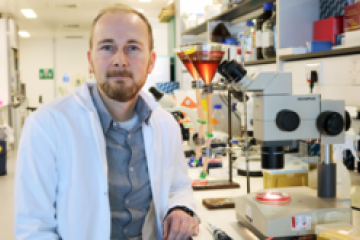Partnerships and impact awards
Adoption of a mouse model of veterinary filariasis for preclinical drug testing

At a glance
Completed
Award date
September 2021 - December 2022
Grant amount
£75,686
Principal investigator
Dr Joseph Turner
Institute
Liverpool School of Tropical Medicine
R
- Refinement
Read the abstract
View the grant profile on GtR
